Welcome to the ultimate guide on Domestic Canary Bird foods and diet! If you want your canary to thrive, providing the right nutrition is key.
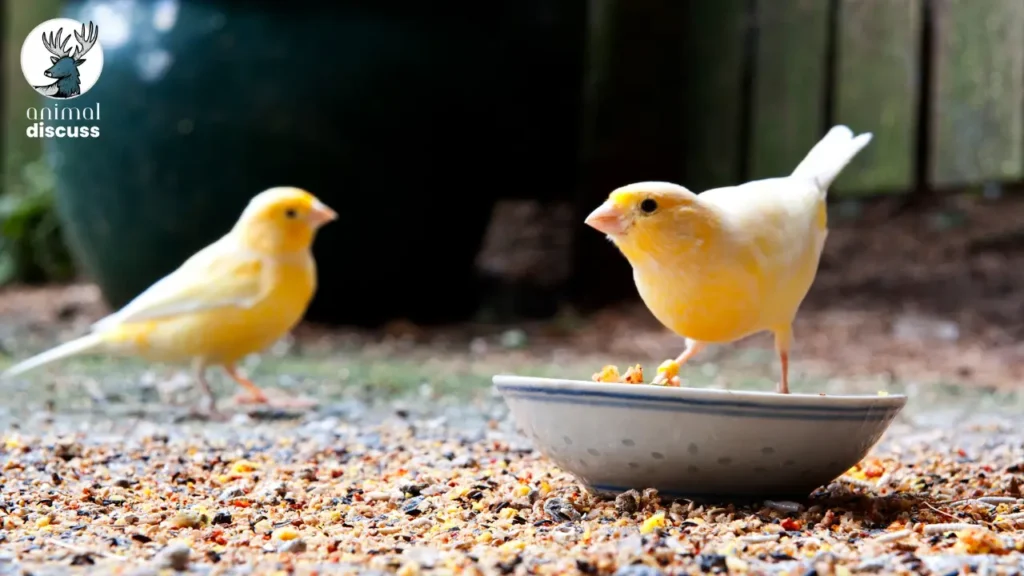
In this comprehensive guide, you’ll learn how to:
- Select the best foods for a healthy, balanced diet
- Understand the role of seeds, fruits, vegetables, and proteins
- Transition your canary to a more varied diet with ease
- Monitor your bird’s health and adjust its meals accordingly
- Boost its vitality and longevity through proper nutrition
So, whether you’re a new canary owner or looking to refine your bird’s feeding routine, this guide will cover everything you need to know. Let’s dive in!
What Are the Basic Dietary Needs of a Domestic Canary?
Canaries are small, energetic pet birds with specific dietary needs to thrive.
These dietary requirements go beyond just filling their stomachs; they directly impact their health, energy, and overall well-being.
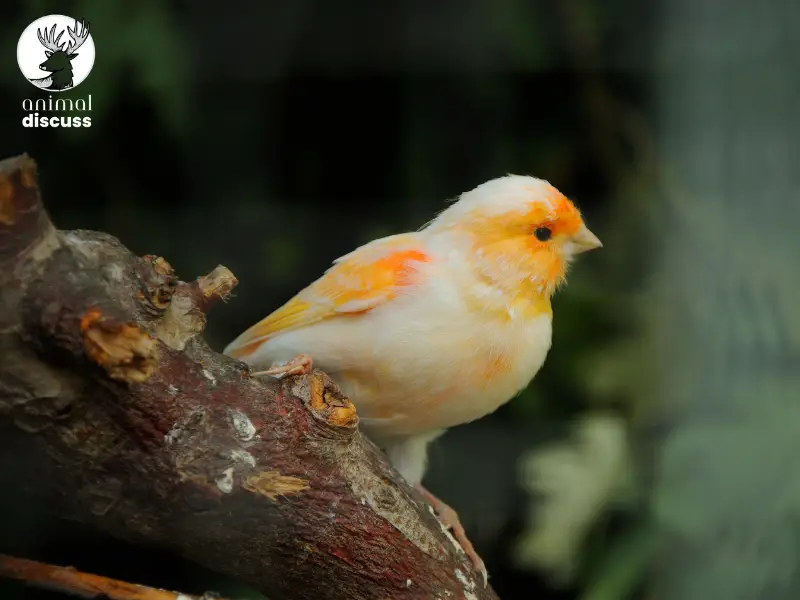
To ensure your Domestic Canary leads a long and healthy life, it’s essential to understand its basic nutritional needs.
Why a Balanced Diet is Key?
A well-balanced diet plays a fundamental role in the health of your canary.
It supports their immune system, feather development, and overall vitality. Like all living creatures, a canary needs an array of nutrients, including proteins, fats, carbohydrates, vitamins, and minerals.
Each of these elements works together to keep the bird healthy, energetic, and well-groomed.
Essential Nutrients for Canaries
Canaries need a mix of proteins and fats to maintain their energy levels.
Protein is necessary for muscle development and feather growth, while fat provides the bird with sustained energy.
Vitamins such as Vitamin A, Vitamin D, and B vitamins support bodily functions, immune health, and metabolism. Minerals like calcium are vital for bone health and egg production, especially in female canaries.
The Importance of Water Intake
An often-overlooked part of a canary’s diet is water. Canaries are small, so they don’t drink large amounts, but they still need constant access to fresh water.
Without it, they can become dehydrated, leading to fatigue, digestive issues, or even death. Always make sure your canary’s water is clean and changed daily.
What Seeds and Grains Should Be Included in a Domestic Canary’s Diet?
Seeds form a crucial part of a Domestic Canary’s diet, but they must be carefully chosen. Millet and canary seed are staples, but a balanced diet means including a variety of other seeds and grains.
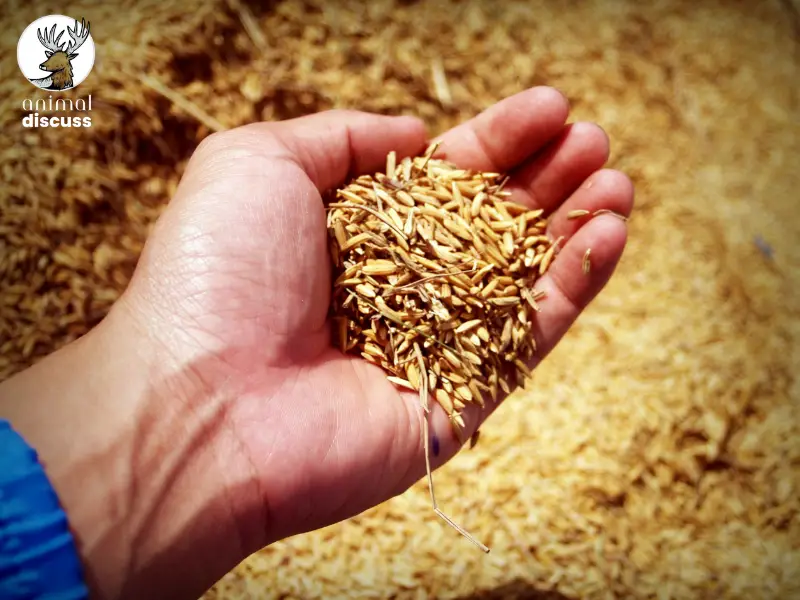
Let’s dive into what works best.
Recommended Seed Mixes for Domestic Canaries
A typical canary seed mix usually contains canary seed, millet, and other seeds like flax or oats. These provide the necessary carbohydrates, fats, and some proteins.
However, not all seed mixes are created equal, and some may have too many sunflower seeds, which are high in fat and should be limited in their diet.
The Role of Millet and Canary Seed
Millet is often the preferred seed for canaries. It’s rich in energy and easy to eat, especially for younger or older birds.
Canary seed is specifically tailored for these birds, providing the right balance of nutrition. These seeds are light on the stomach and ideal for daily feeding.
Avoiding a Seed-Only Diet
Feeding only seeds can lead to nutritional deficiencies in canaries.
They need a variety of foods to stay healthy. Relying too much on seeds can lead to obesity or liver problems due to the high fat content.
A diet that includes fruits, vegetables, and proteins is essential for optimal health.
What Fresh Fruits and Vegetables Can Domestic Canaries Eat?
While seeds are a staple, fresh fruits and vegetables are crucial for a balanced, nutrient-packed diet. They offer a wide range of vitamins and minerals that seeds alone cannot provide.
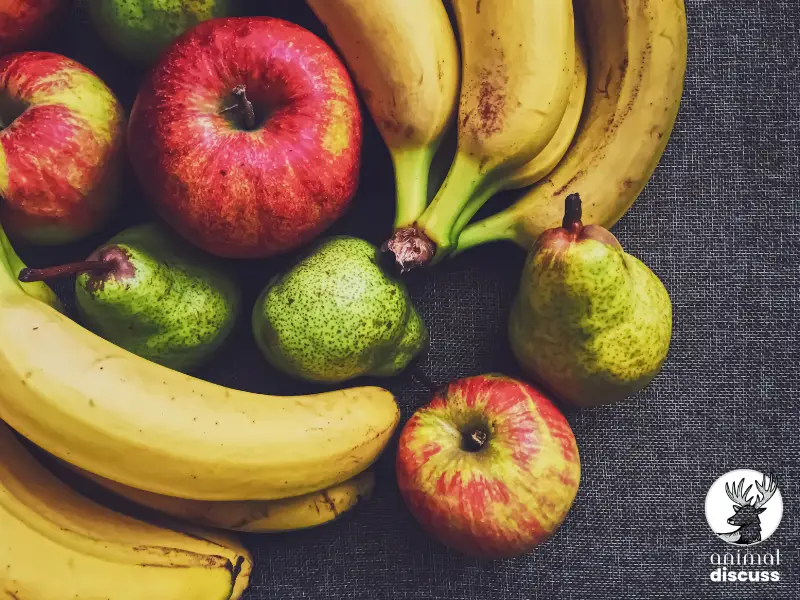
Safe Fruits for Canaries
Many fruits are safe for canaries to eat, and they help diversify their diet. Apples, bananas, pears, and berries are all great options.
However, make sure to remove any seeds from fruits like apples, as some seeds can be harmful. Citrus fruits such as oranges and lemons should be given in moderation due to their acidity.
Vegetables That Benefit Canaries
Leafy greens such as spinach, kale, and dandelion greens are great for canaries. They are packed with vitamins A and C, which are essential for immune health and overall vitality.
Other vegetables like carrots, cucumbers, and broccoli can be offered to provide more nutrients and fiber.
How to Introduce New Foods? Canaries can be picky eaters, so introducing new foods may take time. Start by offering small amounts and gradually increase the quantity. If your canary seems hesitant, try mixing fruits and vegetables with seeds to encourage them to try the new offerings.
Do Domestic Canaries Need Protein in Their Diet?
While seeds and fruits provide essential nutrients, protein is also an important part of a Domestic Canary’s diet.
Protein helps build muscle, repair tissues, and grow feathers. But how do you ensure your canary gets enough?
Protein-Rich Foods for Canaries
Boiled eggs are an excellent source of protein. Cooked beans, like lentils or peas, and tofu are other protein-rich foods that can be offered.
These are especially important during molting or when breeding, as the bird’s body requires more protein during these times.
The Role of Protein in Feather Development
Protein is a building block of feathers, so a deficiency can lead to poor feather quality or slow growth. Additionally, protein aids in maintaining overall health, helping your canary stay strong and active.
Balancing Protein in Their Diet – While protein is essential, too much can lead to kidney strain or other health issues. A good rule of thumb is to offer protein-rich foods about 2-3 times a week as a supplement, rather than as a daily staple.
What Supplements Are Necessary for Domestic Canaries?
Supplements play a key role in ensuring your canary gets all the nutrients it needs to stay healthy. Calcium and other vitamins are crucial for their well-being, especially for female canaries that lay eggs.
Importance of Calcium
Canaries need calcium for strong bones and healthy eggshell production. Providing a cuttlebone or mineral block will allow your canary to naturally ingest calcium.
This is particularly important for females during egg-laying periods, as it prevents calcium deficiency and potential egg binding.
Vitamins for Canaries
Vitamins A, D, and E are essential for immune function, vision, and feather health. In the wild, canaries get these vitamins from a varied diet, but in captivity, supplements may be necessary.
Adding a few drops of liquid vitamin supplements to their water or food can help meet these needs.
How to Safely Provide Supplements? When offering supplements, it’s important to follow the correct dosage. Over-supplementing can lead to toxicity, especially with fat-soluble vitamins like A and D. Always consult with an avian vet to determine what’s best for your canary.
Are There Any Foods Domestic Canaries Should Avoid?
Feeding a canary might seem simple, but not all foods are safe. Some foods can be toxic to birds or cause long-term health issues. Let’s look at what should never be on a canary’s menu.
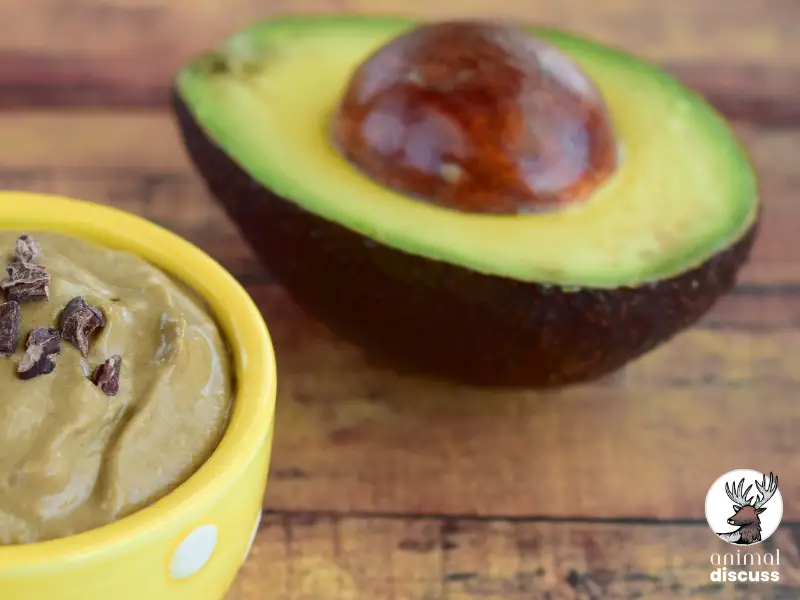
Toxic Foods for Canaries
Foods like avocado, chocolate, alcohol, and caffeine are extremely toxic to birds. Even small amounts can lead to severe health problems, including organ failure or death.
Be especially cautious with chocolate, which contains theobromine, a substance that can be fatal for birds.
Avoiding High-Fat and Sugary Foods
While canaries may enjoy the occasional treat, high-fat or sugary foods like pastries, candies, or fried foods should be avoided. These foods can cause obesity, fatty liver disease, or digestive issues. Stick to fresh, natural foods to maintain your canary’s health.
How to Identify Harmful Foods? Familiarize yourself with safe and harmful foods for birds. Always double-check the safety of new foods before offering them. If in doubt, consult an avian vet or do some quick research.
How Often Should Domestic Canaries Be Fed?
Feeding your Domestic Canary at the right times and in the right amounts is just as important as feeding the right foods. A proper feeding schedule helps your canary stay healthy and energetic.
Understanding Feeding Schedules
Canaries thrive on a routine, so it’s best to feed them at the same time each day. Adult canaries can be fed once in the morning and once in the evening, with a small portion of fresh fruits and vegetables in between.
Baby canaries or those that are ill may require more frequent feedings.
Ideal Portion Sizes
Avoid overfeeding your canary. While seeds should be available throughout the day, they should not be offered in excess.
Offer about 1-2 teaspoons of seed mix per canary daily. Fresh fruits and vegetables can be provided in small portions, ensuring that none goes to waste.
Importance of Consistency
Consistency is key to keeping your canary healthy. Maintaining a regular feeding schedule helps with digestion and encourages good eating habits. Keep fresh water available at all times to prevent dehydration.
How to Transition a Domestic Canary to a Healthier Diet?
Transitioning your canary to a healthier diet can be a gradual process. Whether you’re switching from a seed-only diet or adding more fresh foods, patience is key.
Introducing New Foods Gradually
Start by adding small amounts of new foods to your canary’s diet. Gradually increase the portion as your bird becomes accustomed to the change.
You can mix new fruits, vegetables, or protein-rich foods with their favorite seeds to encourage them to try new things.
Monitoring Their Health During Transition
Keep a close eye on your canary during the transition. Look for signs of digestive distress or changes in behavior. If your canary refuses to eat or seems lethargic, it may be best to slow down the transition process and consult an avian vet.
Creating a Balanced Diet Plan
Once your canary accepts the new diet, aim for a balance between seeds, fruits, vegetables, and proteins. A well-rounded diet is essential for their long-term health, providing them with the necessary nutrients for a happy, active life.
How Does Diet Impact the Health and Longevity of Domestic Canaries?
The diet you provide to your Domestic Canary is one of the most critical factors affecting its health and lifespan.
A poor diet can lead to a variety of health problems, while a balanced, nutrient-rich diet can significantly enhance your canary’s quality of life and longevity.
A Balanced Diet Promotes Vitality
A proper diet keeps your canary active, energetic, and healthy.
Essential nutrients such as vitamins, minerals, and proteins help support the bird’s immune system, feather growth, and organ function.
A well-fed canary will show its best health, with vibrant plumage, clear eyes, and a playful demeanor.
The Role of Nutrition in Disease Prevention
A poor diet can weaken your canary’s immune system, making it more susceptible to infections and diseases. Lack of key nutrients like calcium, vitamins, and amino acids can lead to problems such as egg-binding, liver disease, and obesity.
On the other hand, a balanced diet rich in antioxidants and omega-3 fatty acids helps fight off illnesses and supports long-term health.
Diet and Lifespan
Canaries typically live 10-15 years in captivity, but their lifespan can be extended with proper care, including a balanced diet.
Canaries fed with high-quality, nutrient-rich foods often live longer, healthier lives compared to those with poor diets.
Regularly providing fresh foods like fruits, vegetables, and protein sources ensures your canary thrives throughout its lifespan.
The Impact of Overfeeding and Underfeeding
Overfeeding can lead to obesity, which puts a strain on your canary’s heart, liver, and respiratory system.
On the other hand, underfeeding can cause malnutrition, leading to weakness, poor feather growth, and a weakened immune system. Proper portion control is key to maintaining your canary’s weight and overall health.
Final Words
To wrap things up, providing the right diet is crucial for your Domestic Canary’s overall health and well-being. With the right mix of seeds, fruits, vegetables, and proteins, you can ensure your canary stays vibrant, energetic, and disease-free.
By making gradual changes to their diet, you’ll encourage a balanced approach that enhances both their longevity and vitality.
In short, a well-fed canary is a happy canary. Proper nutrition is the foundation of a long, healthy life for your feathered friend.

